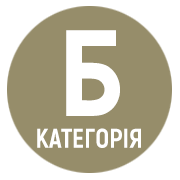THE ONLY WAY “OUT” IS “THROUGH”. ON THE INFLUENCE OF WAR ON LIFE AND PSYCHOANALYTIC PRACTICE
DOI:
https://doi.org/10.32782/upj/2025-3-1-5Keywords:
symbolic thinking, psychoanalytic tools, setting, “domestication of nameless dread”, authoritarian and humanistic conscience, propagandistic state of mind, Ego-destructive Super-Ego, short-term crisis counseling, reparative resource.Abstract
Abstract. Continuing psychoanalytic practice during wartime, we strive to make “the best of a bad job” (Bion, 1962) with a psyche and setting deeply impacted by the war. In this article, I attempt to integrate impressions, thoughts, and questions about the state and complexities of symbolic thinking during wartime. I propose viewing the analyst in wartime from multiple perspectives: as an individual directly experiencing trauma and as a professional who, under such circumstances, helps others navigate life while continuing psychoanalytic processes either in traditional settings or through shortterm crisis counseling. I outline our journey as one of moving from “domestication of nameless dread” (R. Britton), through “bearing the unbearable,” mourning, maintaining hope and attempting to restore reparative resources (H. Weiss), symbolic thinking, and creativity. In this article, I focus on the containing function of words and language, reflecting on the vulnerability of symbolic thinking amid the linguistic disidentification of the Russian-speaking population of Ukraine. I highlight the emergence of an internal paranoid situation in such conditions and compare mental processes to the physiological Rh-conflict, which directly affects thinking and symbol formation. I explore the process of Ukrainization in the context of identity reconstruction and outline the spectrum of guilt: from paranoid to depressive forms, as well as conscience – from authoritarian to humanistic (R. Money-Kyrle). Special attention is given to the potential for psychoanalytic processes to develop under the strain of the analyst’s compromised psyche and setting. Clinical examples illustrate typical challenges and ways to overcome them. I propose an empirical classification of disruptions in the analytic setting during contemporary war. I emphasize the importance of restoring reparative resources (H. Weiss), to overcome the consequences of trauma and to avoid obsessive cycles of revenge and paranoid guilt, which block the processes of mourning and “historization” of trauma. In my article, I also dare to make my poetic debut as an example of these processes: the birth of a word that contains experience, symbolizes it, and restores reparative resources.
References
Bick, E. (1968). The Experience of the Skin in Early Object Relations In: Harris Williams M., ed. Collected Papers of Martha Harris and Esther Bick. The Roland Harris Trust.
Bion, W. (1979). Making the best of a bad job. In Bion W.R. The Complete Works of W.R. Bion (Edited by C. Mowson). V. X, p. 136–145.
Bion, W.R. (1962). Learning from Experience, London: Heinemann.
Britton, R. (2015). Trauma in Kleinian psychoanalysis. In Borossa, J., Bronsein, C., Pajaczkowska, C. (eds). The New Klein-Lacan Dialogues. London, Routledge, p. 139–148.
Britton, R. Publication anxiety. In Britton, R. (1998). Belief and Imagination. Explorations in Psychoanalysis. London, Routledge, p. 197–211.
Britton, R. The ego-destructive superego. In: Britton, R. (2003). Sex, Death and the Superego: Experiences in Psychoanalysis. London: Karnac Books, Ch. 8, p. 117–128.
Fornari, F. (1965). Introduction. In: Fornari, F., Pfeifer, A. (1974). The Psychoanalysis of War. Anchor Press, New York, p. VII–XXXI.
Frank, C. (2003). ‘Zu Melanie Kleins zeitgenössischer Bezugnahme auf Hitler und den Zweiten Weltkrieg in ihren Behandlungen’. Psyche – Z Psychoanal., 57, 708–728.
Garland, C. (1998). Thinking About Trauma. In: Garland, C. (ed) (2002) Understanding Trauma. A Psychoanalytical Approach. Second enlarged edition. London, Karnack, pp. 9–31.
Money-Kyrle, R. (1955). Psycho-Analysis and Ethics. The collected papers of Roger Money-Kyrle. Ed. by D. Meltzer with assistance of E. O’Shaughnessy, London, Clunie Press, 1978, pp. 264–284. Ранее опубликовано в New Directions in Psycho-analysis, Tavistock, London, 1955, pp. 421–439. Більш рання версія статті: Money- Kyrle, R. (1952). Psycho-Analysis and Ethics. Int. J. Psycho-Anal., 33, 225–234.
Money-Kyrle, R. (1978). The Collected Papers of Roger Money-Kyrle. Clunie Press. A Psychological Analysis of the Causes of War.
Romanov, I. (2023). Collective traumas, personal overcoming: In memory of Tatyana Nikolaevna Pushkareva. Psychoanal Cult Soc., 28, 376–392. https://doi.org/10.1057/s41282-022-00363-4.
Romanov, I. (2023). Equation, moralization and denial. Psychoanal Cult Soc., 28, 109–115.
Segal, H. (1952). A Psycho-Analytical Approach to Aesthetics Int. J. Psychoanal., 33, 196–207.
Segal, H. Imagination, play and art. In Segal, H. (1991). Dream, Phantasy and Art. London, Routledge, p. 101–109.
Steiner, J. (2003). Psychic Retreats. Pathologic organization Pathological Organizations in Psychotic, Neurotic and Borderline Patients. Routledge.
Steiner, J. Before and After the Fall: Horizontal and Vertical Object Orientations in the Analysis of a Patient with Grievances. – A presentation for Ukrainian IPSO conference, November 30 – December 1, 2024.
Weiss, H. (2020). Trauma, Guilt and Reparation. London, Routletge.
Романов, І. (2023). Сучасна пропаганда та пропагандистські стани души: психоаналітична перспектива. Українській психоаналітичний журнал, 1 (3), 24–29.



